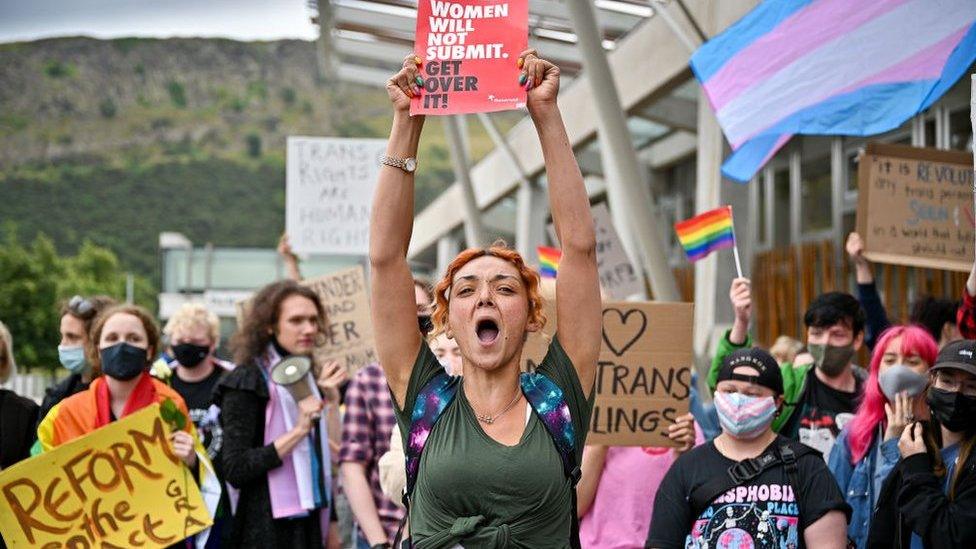Gender bill veto would be an outrage - Sturgeon
- Published
Nicola Sturgeon says the UK government would be using trans people as a "political weapon" if it decides to block Scottish gender reforms.
Nicola Sturgeon has said the UK government would be using trans people as a "political weapon" if it decides to block Scottish gender reforms.
The first minister said any veto of the legislation would be an "outrage".
The UK government said it had not yet decided whether to use powers which would stop the bill becoming law.
Ms Sturgeon also criticised Labour leader Sir Keir Starmer for saying that 16-year olds were too young to decide about changing their gender.
Holyrood MSPs backed a move towards a self-identification system last month.
It would mean that people in Scotland would no longer require a medical diagnosis to change gender. The timescale involved would also be reduced.
The UK government is considering using its own powers to block the Scottish legislation.
Under Section 35 of the Scotland Act, ministers can stop a bill getting royal assent - a power which has never previously been used.
Downing Street said Scottish Secretary Alister Jack would make an announcement ahead of Wednesday's deadline.
The prime minister's spokesman said: "No decision has been taken at this point by the UK government.
"It's the secretary of state for Scotland who is the ultimate decision-maker."
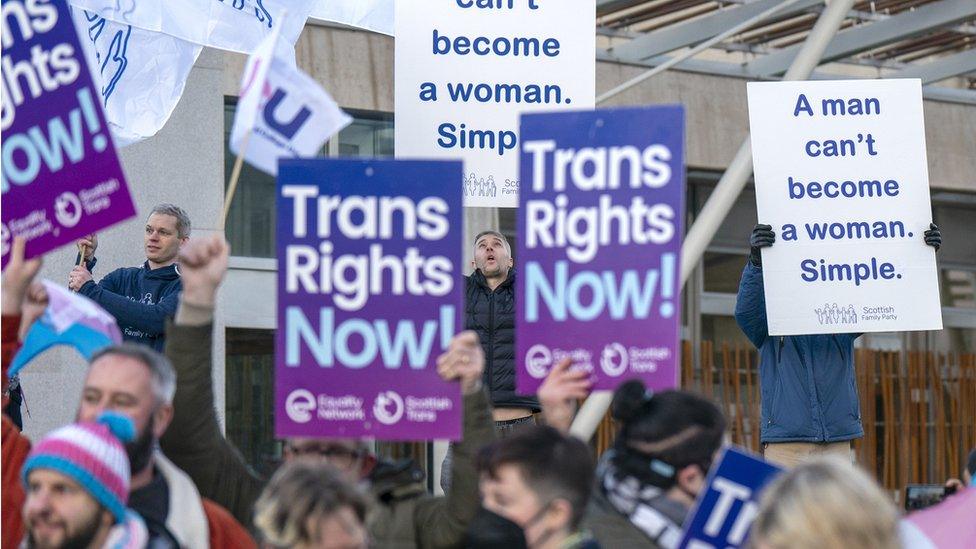
Nicola Sturgeon said there were no grounds to challenge the legislation, as it falls within the competence of the Scottish Parliament.
She said: "It doesn't affect the operation of the equality act and it was passed by an overwhelming majority of the Scottish Parliament after very lengthy and intense scrutiny by MSPs of all parties.
"If there is a decision to challenge, then in my view then it will quite simply be a political decision and it will be using trans people, already one of the most vulnerable stigmatised groups in our society, as a political weapon.
"I think that will be unconscionable, indefensible and really quite disgraceful."
UK ministers have concerns the Scottish system could come into conflict with UK-wide equalities law.
Prime Minister Rishi Sunak has said the government was taking advice on the implications of the reforms "as is completely standard practice".
'Slippery slope'
Ms Sturgeon said the significance the UK government using Section 35 powers would "go beyond the particular subject matter" of gender reforms.
She added: "There is a bigger issue of principle here, the right of the Scottish Parliament to legislate within its areas of competence.
"If we see a challenge this week then we will be seeing yet more evidence from this UK government of complete contempt for the Scottish Parliament and devolution."
The first minister also said it would "embolden" the UK government to use Section 35 powers on other issues, which she described as "a very slippery slope indeed".
'16 is too young to change legal gender', says Sir Keir Starmer
At a Scottish government media briefing on the health service, Ms Sturgeon was also asked about Sir Keir Starmer's views on the gender reforms.
The Labour leader told the BBC's Sunday with Laura Kuenssberg he had concerns and felt 16-year-olds were too young to change their legally recognised gender.
But he stopped short of supporting a challenge to the legislation.
Ms Sturgeon pointed out that Scottish Labour had voted for the legislation at Holyrood.
She said: "If he backed any move by the government to block this he would be showing utter contempt for his own Scottish party as well as the Scottish Parliament."
A survey conducted for the BBC last year showed general sympathy towards trans people alongside uncertainty over some of the details of Scotland's gender reforms.
The controversial legislation, which is expected to come into force later this year, lowers the age at which people can apply for a gender recognition certificate from 18 to 16.
It also removes the need for a medical diagnosis of gender dysphoria, while applicants only needing to have lived as their acquired gender for three months rather than two years - or six months if they are aged 16 or 17.
The BBC poll found people aged 16 to 34 were more likely than older people to support making it easier to acquire a gender recognition certificate and also backed allowing people to legally identify as non-binary.
In addition to the generation split, it found there was also a tendency for women to be more supportive than men.
How do you feel about the Scottish gender bill being blocked? Share your thoughts by emailing haveyoursay@bbc.co.uk, external.
Please include a contact number if you are willing to speak to a BBC journalist. You can also get in touch in the following ways:
WhatsApp: +44 7756 165803
Tweet: @BBC_HaveYourSay, external
Please read our terms & conditions and privacy policy
If you are reading this page and can't see the form you will need to visit the mobile version of the BBC website to submit your question or comment or you can email us at HaveYourSay@bbc.co.uk, external. Please include your name, age and location with any submission.
- Published15 January 2023
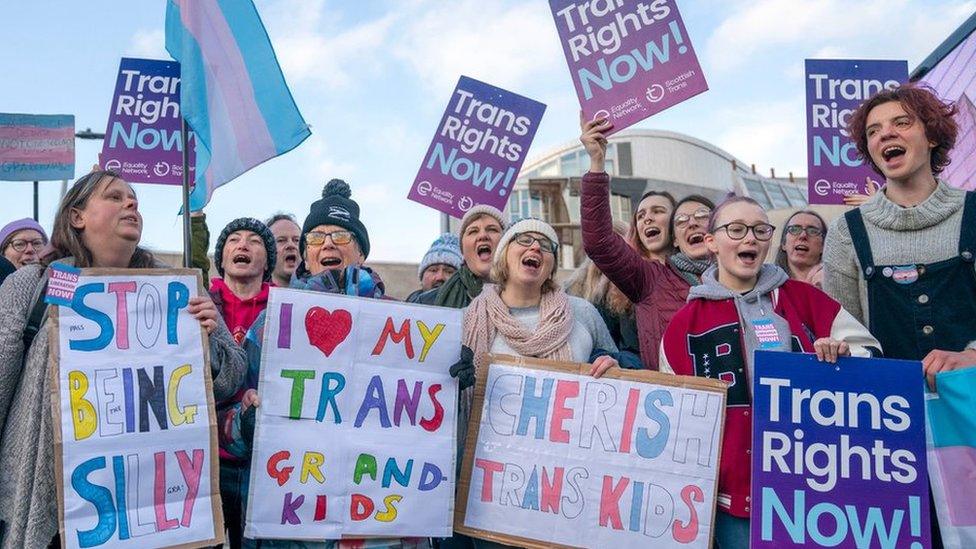
- Published14 January 2023
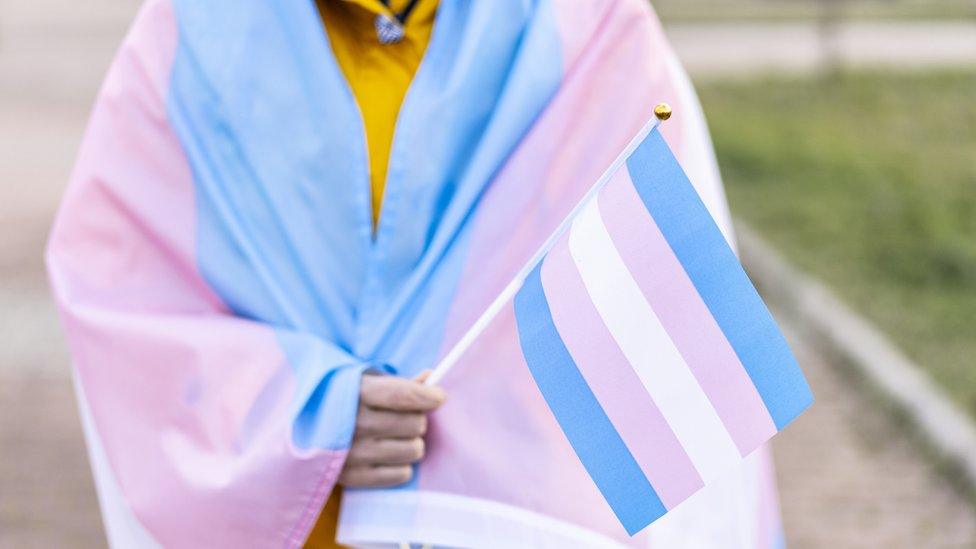
- Published13 January 2023
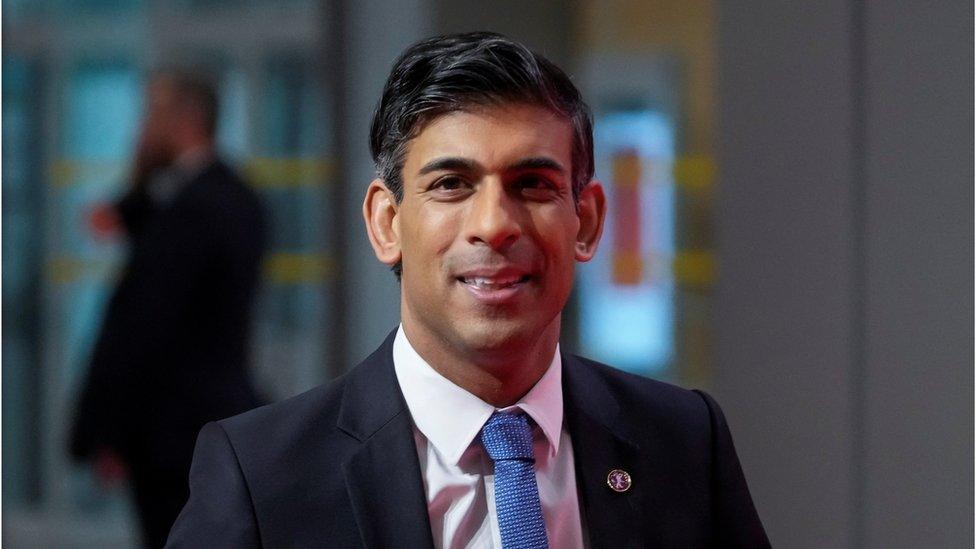
- Published8 December 2023
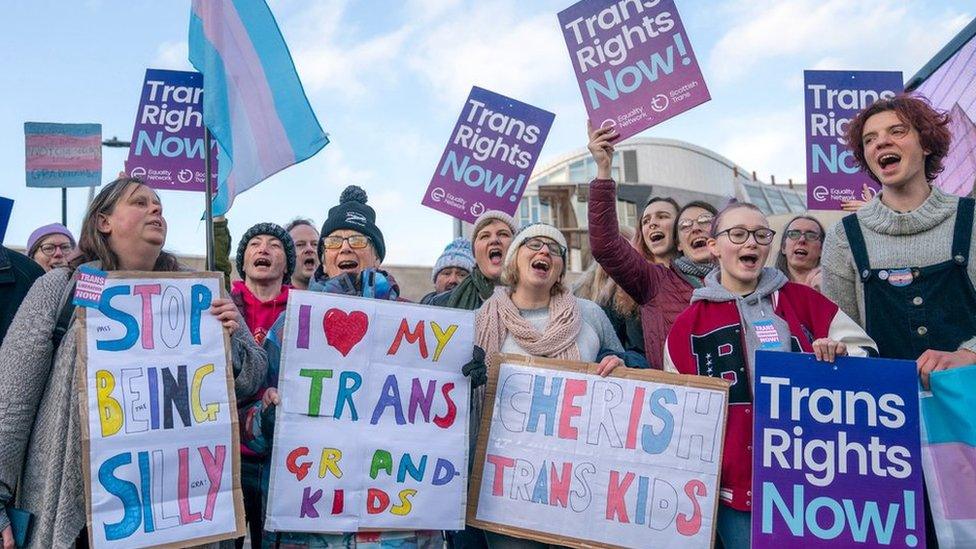
- Published17 February 2022
